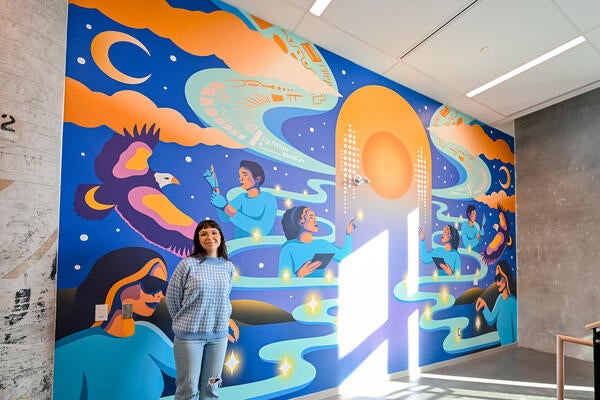
Competing for Talent: Brain Drain or Brain Gain
President Goel speaks to Toronto Board of Trade Workforce Summit

President Goel speaks to Toronto Board of Trade Workforce Summit
By Sam Charles Manager, Executive CommunicationsThe pandemic has forced employers and employees alike to rethink the world of work. Whether the rapid shift to remote work to challenges recruiting top talent, evolving workplace expectations to critical calls for diversity, equity and inclusion – employers and employees are embracing new concepts and approaches.
Speaking at the Toronto Board of Trade’s Workforce Summit 2.0: Closing the Talent Gap, University of Waterloo President Vivek Goel discussed the shared responsibility of the post-secondary education sector and industry to develop the talent that will reshape our local and global post-pandemic recovery. “We clearly have a talent crisis,” explains Goel. “There are three main areas post-secondary education can help in addressing the gaps: producing new talent – our students; reskilling and upskilling existing talent – those working already; and helping bringing new talent into the country – our international students who become immigrants.”
The summit brought together business and thought leaders to get to the root of the transformational challenges facing industry, and unlock solutions that leverage the global talent pool and identify what organizations need to do to win.
A pioneer in co-operative education, Waterloo has a rich history of working alongside industry to building work-integrated learning programs.
Recently, the Business and Higher Education RoundTable suggested that “work-integrated learning remains the gold standard to develop, recruit, and transition new grads into the workplace. Companies are increasingly adopting WIL as part of their recruitment strategies and collaborating with post-secondary education institutions to do so.”
According to Goel, Waterloo’s on-going success in this area is establishing deep engagements with workplaces that have led to research partnerships that provide purpose-driven collaborations.
“We’re using our rich dataset of work term postings to identify the key skills that employers are looking for, to develop our Future Ready Talent Framework.” The framework now informs the institution’s co-op evaluations, work term consultations with employers, professional development courses and career workshops for students.
As a result, Waterloo students graduate much better prepared for the changing nature of work.
Working directly with industry partners, Waterloo launched the WE Accelerate program, a curriculum specifically intended to prepare first-year work term students. The program provides students with a week of synchronous career curriculum, followed by a month of skills development with corporate partners. WatSpeed is another intiative that connects Waterloo with external partners to create programs to help professionals keep pace with emerging technologies and understand their impact on busineses, economies, the environment, and society.
“It is crucial for learners to be agile, and be able to transfer skills from industry to another,” Goel told the summit audience. “Not only that, regardless of discipline, university students benefit from broad humanist training that helps them understand how their education relates to broader society.”
While supporting learners throughout their career lifecycle, Goel also pointed to the need for industry to adapt their practices to retain top-talent. “As an institution, Waterloo is working alongside industry to maintain the momentum behind Ontario’s and Canada’s growing innovation ecosystem.”
These complex issues will be investigated at next month’s Waterloo Innovation Summit on April 14.

Read more
How Doug Kavanagh’s software engineering degree laid the foundation for a thriving career in patient care

Read more
Many Hearts, One Mind by Indigenous artist Alanah Jewell celebrates the act of creation shared by the Land and innovators in our community

Read more
Redefining capstone learning by bringing students, faculty and community partners together to tackle real-world challenges
The University of Waterloo acknowledges that much of our work takes place on the traditional territory of the Neutral, Anishinaabeg, and Haudenosaunee peoples. Our main campus is situated on the Haldimand Tract, the land granted to the Six Nations that includes six miles on each side of the Grand River. Our active work toward reconciliation takes place across our campuses through research, learning, teaching, and community building, and is co-ordinated within the Office of Indigenous Relations.